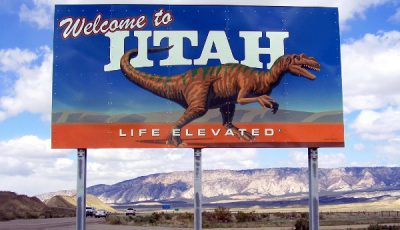Pinterest Lawsuit: Potential Game-Changer, or Much Ado About Nothing?
 SAN FRANCISCO – In a complaint filed last week, photographer Harold Davis asserts that Pinterest, the popular social media platform and self-described “visual discovery engine,” is also “a mechanism for people to violate the copyright rights of others.”
SAN FRANCISCO – In a complaint filed last week, photographer Harold Davis asserts that Pinterest, the popular social media platform and self-described “visual discovery engine,” is also “a mechanism for people to violate the copyright rights of others.”
At issue in the case are 10 photographs taken on various dates by Davis between 2008 and 2016 and which later posted to his Flickr account. All the images had been granted copyright registrations from the United States Copyright Office prior to the alleged infringement taking place, according to the complaint.
What Davis didn’t do, according to the complaint, is publish his photographs on Pinterest. The images later appeared in emails to Pinterest members, however – messages which sported the subject line “We found some fresh pins for you.”
Davis’ lawsuit alleges that on October 1, 2019, “Defendant copied, posted, and distributed Copyrighted Photograph 1 via email (‘Email 1’) titled, ‘We found some fresh Pins for you.’ Email 1 includes an active link… to a larger version of Copyrighted Photograph 1, as well as copies of additional photographs authored by and subject to copyright by Plaintiff.”
“Copyrighted Photograph 1, as displayed on Email 1 and Link 1, included the following copyright information: ‘© Harold Davis,’” the complaint continues. “Link 1 contained an active ‘Save’ button, which enabled any viewer of Link 1 to copy Copyrighted Photograph 1 to a Pinterest ‘board.’ The ‘Save’ button included an interface display including the following text: ‘© Harold Davis’ immediately adjacent to Copyrighted Photograph 1. Link 1 contained an active ‘Send’ button, which enabled any viewer of Link 1 to copy Copyrighted Photograph 1 to a selection of social media platforms, including WhatsApp, Facebook, Twitter, and Facebook Messenger.”
Essentially the same set of facts is repeated for each image at issue in the lawsuit, with just the image titles, dates of capture, publication and issuance of registered copyright by the Copyright Office varying from one example to the next. The complaint then delivers the crux of its argument, which seems to be stated in anticipation that Pinterest will raise a defense under the “safe harbor” provisions of the Digital Millennium Copyright Act (“DMCA”).
“Pinterest does not qualify for protection from copyright infringement under the Digital Millennium Copyright Act (‘DMCA’) because Pinterest initiated the copying, posting, and distribution of Copyrighted Photographs 1-10 detailed above,” Davis states in his complaint. “Pinterest does not qualify for protection from copyright infringement under DMCA because its copying, posting, and distribution of Copyrighted Photographs 1-10 was not at the direction of a person other than Pinterest, the purported ‘service provider.’ Pinterest’s copying, posting, and distribution of Copyrighted Photographs 1-10 have been without license or permission of Plaintiff.”
While the complaint doesn’t address whether Davis’ images were previously ‘pinned’ by a Pinterest user prior to being included in the emails to the site’s members, if the facts alleged by Davis are true, the platform may indeed have trod outside the territory of DMCA safe harbor protection. But, as attorney Larry Walters noted in comments to YNOT, that’s a mighty big “if,” given the facts alleged in the complaint.
“Typically, DMCA safe harbor would extend to any content that was posted at the direction of a platform user, unless the platform copies that content and uses it for some other purpose,” Walters said. “It seems that the Plaintiff is complaining about the circulation of emails which encourage third party users to share embedded links on Pinterest and other platforms. Any actual saving or sharing of the content would presumably still be done by the third party users, so the activity likely remains within the scope of DMCA safe harbor absent additional facts.”
Could the court construe Pinterest’s emails as an inducement to infringe, as the court held in the landmark MGM Studios v. Grokster case? Walters thinks that outcome is unlikely, too.
“Pinterest does not appear to be inducing infringement,” Walters told YNOT. “Its share feature has substantial non-infringing uses, so the Plaintiff may have difficulty proving liability through inducement.”
As with any case in its earliest stages, it’s hard to say what will become of Davis’ complaint. Based on Walters’ analysis, it’s hard to see the photographer winning the case — but copyright jurisprudence can be unpredictable, as recent decisions in other copyright cases demonstrate.
Pins stock image by Robert Horvath from FreeImages.com













